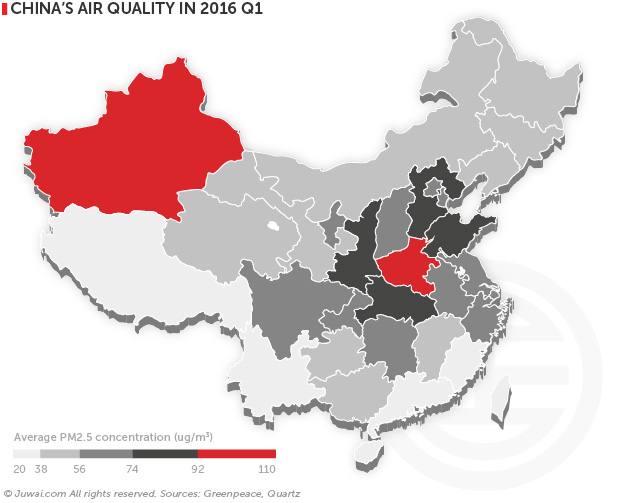You've successfully copied this link.
What the G20 Summit tells about the Chinese buyer mindset

Last week, the G20 Summit was hosted in China for the very first time.1
The 11th G20 Summit was hosted in Hangzhou, the ancient capital of the Southern Song Dynasty that has historically been feted as one of China’s most beautiful cities akin to ‘paradise on earth’.
Today, however, Hangzhou is hailed as one of China’s wealthiest cities just 40 minutes away from Shanghai, and is more famed as the hometown of e-commerce goliath Alibaba.1
As one of the world’s largest developing countries in the world, China’s hosting of the G20 Summit is easily one of its biggest diplomatic events of 2016, one which will see China playing a more prominent role in international affairs, and asserting its dominance in global economics.
The G20 also saw a focus on environmental protection, which was put at the top of the agenda. This reflects the fact that environmental standards remain a huge concern for mainland residents, and is fast becoming a major driver of Chinese investment in overseas property.
China commits to a cleaner world by 2025
The G20 produced a major agreement between China and the US to ratify the Paris Climate Agreement2, in which they have committed to cut greenhouse gas emissions and keep global temperature increases below 2 degrees C by 2025.3
This is a major step, as China and the US are the two largest emitters of greenhouse gases, and also because other countries have been looking towards the US and China to take the lead before making their own commitments.
In fact, China has shown signs of progress toward reducing emissions in the lead-up to this year’s G20. For example, Beijing saw a 16% decrease in harmful air pollutants during 2015, according to research by the Paulson Institute and Greenpeace.4 The same study reported a 12% y-o-y decrease in PM 2.5 levels in Shanghai during 2015.4

Growing Chinese demand for an environmentally healthy lifestyle
Though laudable, China’s performance is still not enough to mean that its air standards are comparable with other, cleaner cities around the world.
In fact, while standards in Beijing and Shanghai and coastal areas have improved, new power station construction and the relocation of industry to lower-tier cities has seen air quality standards decline in less-developed areas.5
And today, an emerging trend is seeing a desire for a cleaner lifestyle in a healthier environment as one of the major factors driving Chinese overseas property investment.6
Chinese HNWIs cited environmental pollution as their #2 most popular reason why they are seeking to migrate overseas.6
This is in tune with Juwai Data, which is seeing the largest growth in search volumes for overseas property in lower-tier cities in areas, where China’s air conditions are the most challenging.
Chinese buyer searches in China’s second- and third-tier cities grew 59% and 43%, respectively on Juwai.com in Q2 2016, compared with Q4 2015. In contrast, search volumes in first-tier cities grew 27% during the same time period.7
However, this Chinese quest for environmental health and safety goes beyond air quality. Here are other environmental issues at the forefront of Chinese property buyers’ thoughts:
- Water quality: The Chinese government is investing $112 billion on improving its water distribution network to improve water standards8, but concerns about water quality prevails amidst the increasing demands put on China’s water system as the country expands. It’s no coincidence then that countries ranked as having the highest water quality standards, such as the UK and New Zealand9, feature prominently in Chinese buyer searches on Juwai.com. It's also a reason why Brazil isn't so hot with Chinese property hunters right now, even with the recent Rio Olympics drumming up massive attention in China.
- Urban density: China’s urbanisation process is building the biggest consumer economy in the world, but it’s increasing urban population density and reducing green spaces in city center areas as well. As such, the Chinese desire for the larger living spaces and access to Mother Nature is growing rapidly, which explains the strong demand for properties in picturesque locations such as Canada, Australia, New Zealand, and coastal Thailand.
- Food safety: Chinese have long grown cynical over China’s food safety, which remains dubious to date. This explains the lucrative cross-border trade in imported foods, such as milk, vegetables, and meats in China, and is also one of the reasons why Chinese buyers look favourably on countries offering high food standards like Canada, France, Japan, New Zealand, and Australia.
Agents, it's time to upsell environmental health
It will take years before China can achieve the kinds of improvements in environmental standards that wealthy Chinese currently seek for, so it’s safe to conclude that environmental concerns will keep propelling Chinese buyers overseas in the foreseeable future, and drive continued deal flow from the Middle Kingdom.
With this in mind, featuring environmental quality at the forefront of your pitch to Chinese buyers – alongside other main drivers such as education, retirement, emigration, and investment returns – is a strategy worth considering, and could be a factor that can make all the difference in getting pipeline deals over the line.
What’s more, with burgeoning demand from China generating a stunning $93 billion in residential property investment in the US alone between 2010 and 201510, there is every reason to put it into practice without delay.
Sources: 1. The Economist: China prepares to host the G20; 2. Reuters: U.S., China ratify Paris climate agreement; 3. Washington Post: The U.S. and China just joined the Paris climate deal — which could be bad news for Donald Trump; 4. Huffington Post: How China is (surprise!) winning its war on air pollution; 5. Quartz: China is reducing air pollution in its big cities—by making it worse in its smaller ones; 6. Hurun Report: Immigration and the Chinese HNWI 2015; 7. Juwai IQ Data Q4 2015-Q2 2016; 8. China Water Risk: China’s long march to drinking water; 9. Water Challenge: Ten countries with the best water standards worldwide; 10. CNBC: Chinese investors have spent $300 billion on US property, study finds;
Liked this article? Sign up for free to get Juwai Juwai Asia Market updates!
2025 © Juwai. All Rights Reserved Privacy Policy | Terms of Service


